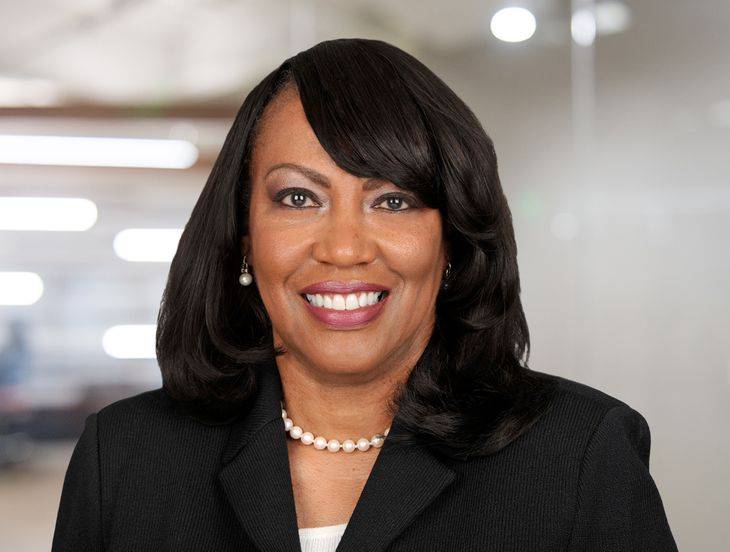What Businesses Need to Know About DEI in the Trump Era: FAQs for Employers
Insights
2.07.25
Last Updated February 7, 2025
The whirlwind first few weeks of the second Trump administration have left private employers with concerns and questions related to Diversity, Equity, and Inclusion (DEI) programs. In order to dispel myths and provide practical answers about your legal risks, FP’s DEI and Equal Employment Opportunity Compliance Team has assembled the following series of questions and answers.
TABLE OF CONTENTS
General Update on DEI Development Under Trump
Legal Risks and Compliance Strategies
Looking to the Near Future
Federal Contractor Considerations
General Update on DEI Development Under Trump
How has the federal stance on DEI changed under the Trump administration?
The new Trump administration has taken aim at DEI initiatives within both the federal government and the private sector and took a series of dramatic steps related to DEI programs in the first weeks after assuming office. Here are a few key examples:
- Trump issued an executive order directing federal agencies to combat “illegal” corporate DEI initiatives.
- Trump installed Andrea Lucas – an avowed opponent of illegal DEI – as Acting Chair of the Equal Employment Opportunity Commission (EEOC) and ousted two Democratic Commissioners. These two moves have set the stage for the agency to focus on DEI programs at private organizations.
- For federal contractors, Trump revoked an executive order that mandated affirmative action requirements for federal contractors and subcontractors through the Office of Federal Contract Compliance Programs (OFCCP) and promoted DEI programs. You can read more about this below in the section titled “Federal Contractor Considerations.”
What is “illegal DEI” as defined by the Trump administration?
The administration has not provided a clear definition of “illegal DEI.” Trump’s January 21 executive order defines prohibited conduct as:
- illegal discrimination and preferences; and
- workforce balancing based on race, color, sex, sexual preference, religion, or national origin.
However, this type of conduct has long been prohibited by existing federal law (discrimination and quotas have always been unlawful under Title VII of the Civil Rights Act and other statutes), Stay tuned--the Trump administration has indicated that its objectives go beyond reinforcing Title VII.
What does the DEI executive order actually mean to employers in the private sector?
Trump’s January 21 executive order, which you can read here, does the following with respect to private sector employers:
- Instructs federal officials, including the attorney general and all agency heads to prepare and submit a report that the administration will use to establish new “civil rights” policies against corporate DEI programs within 120 days – or by May 21. The report must include recommended measures to encourage the private sector to “end illegal discrimination and preferences, including DEI,” as well as a proposed strategic enforcement plan.
- Directs all federal agencies to “combat illegal private-sector DEI preferences, mandates, policies, programs, and activities” and to take all appropriate action to advance the order’s policy of “individual initiative, excellence, and hard work” among private employers.
- The order does not apply to private-sector employment and contracting preferences for military veterans and individuals with disabilities.
Are DEI programs illegal now?
Correctly designed DEI programs have never been inherently illegal, and remain viable even in the face of recent events – but they must comply with anti-discrimination laws such as Title VII. Just as under any prior presidential administration, employers must ensure their initiatives do not involve:
- quotas;
- set-asides; or
- policies that explicitly favor or disadvantage employees based on race, gender, or other protected characteristics.
Didn’t the Supreme Court strike down affirmative action programs a few years ago?
No – not as they relate to private sector employers. In 2023, SCOTUS ruled that the use of race in college admission decisions violated the Equal Protection Clause of the Fourteenth Amendment. Employer DEI programs were not directly addressed by the Court’s decision.
How should employers respond to state-level DEI bans or restrictions that conflict with federal anti-discrimination laws?
There are state laws promoting and restricting DEI programs in employment, creating a complex compliance landscape. Employers operating in multiple jurisdictions should work closely with legal counsel to develop a unified strategy that aligns with both state and federal requirements. Adjusting programs to emphasize broad-based inclusion, fairness, and equal opportunity rather than identity-specific preferences can help navigate these legal conflicts.
What role does AI play in DEI, and what legal risks does it present?
AI is increasingly used in hiring, performance evaluations, and promotions, but its application presents risks if algorithms reinforce existing biases. The EEOC signaled a willingness to scrutinize AI systems that result in disparate impact claims under the Biden administration, and even if the new-look EEOC offers less attention to this area, there’s no doubt that state agencies and plaintiffs’ attorneys will be doing so. Employers should regularly audit AI-based hiring tools, ensure transparency in algorithmic decision-making, and provide alternative assessment methods for candidates who may be disadvantaged by automated systems.
Legal Risks and Compliance Strategies
What are the biggest legal risks for employers implementing DEI programs?
Given the latest developments, you need to recognize that even well-constructed DEI programs could run some risk for your organization. The risks include:
- Increased risk of discrimination lawsuits alleging DEI-related unlawful discrimination from employees who feel disadvantaged.
- Scrutiny from federal and state agencies such as the EEOC, OFCCP, State AGs, and DOJ – including potential agency audits.
- Internal employee complaints, spurred on by messaging from the White House and external advocacy groups encouraging employees to take action.
- Public scrutiny from employees and members of the public, amplified by social media and other news outlets.
- Potential conflicts between federal restrictions and state/local laws that mandate diversity initiatives.
Have there been recent examples of companies facing legal scrutiny because of DEI programs?
Yes, at least three recent examples (which you can read about here):
- A venture capital firm ended a grant contest for Black women business owners as part of a settlement agreement it entered into in September 2024 to resolve claims that the contest unlawfully excluded white and Asian-American women. The 11th Circuit Court of Appeals held that this program likely violated a federal anti-discrimination law and was unlikely to enjoy First Amendment protection, leading the firm to end its contest.
- The 4th U.S. Circuit Court of Appeals agreed that an employer committed unlawful discrimination against a former executive – a white man who claimed his employer fired him and replaced him with a Black woman amidst the company’s widescale diversity and inclusion initiative, which had an express goal of “adding dimensions of diversity to the executive and senior leadership teams.” The appeals court set aside the jury’s award of $10 million in punitive damages in March 2024 and reduced them to $300K.
- Another case involved a white man who claimed that his former employer, the Colorado Department of Corrections, subjected him to a hostile work environment by implementing a mandatory DEI training. Specifically, he claimed the training “demeaned him of his race and promoted divisive racial and political theories that would harm his interaction with other corrections’ personnel and inmates.” The 10th U.S. Circuit Court of Appeals agreed with a lower court that dismissed the case, concluding the allegations were too speculative “at this time” to survive the employer’s motion to dismiss. However, it noted that the employer’s race-based training program was “troubling on many levels” and that such programs can create hostile work environments and set the stage for actionable misconduct by organizations employing them “when official policy is combined with ongoing stereotyping and explicit or implicit expectations of discriminatory treatment.”
What types of DEI practices are most likely to come under scrutiny?
While the following actions have always been risky, they are especially likely to come under fire given recent events:
- Hiring or promotion policies that give explicit preference to certain demographic groups.
- Internships or mentoring programs that give explicit preference to certain demographic groups.
- Employee training that includes race- or gender-based stereotyping.
- Affinity group policies that exclude employees based on protected characteristics.
- Supplier diversity initiatives that mandate racial or gender-based quotas.
- Policies that limit speech or expression in a manner perceived as restricting certain viewpoints.
- AI-driven hiring or evaluation tools that unintentionally embed or reinforce bias.
Are there benefits to maintaining a DEI program?
Many employers recognize that the benefits of diversity in the workplace go beyond brand recognition and increased profits. When businesses ensure they are building their workforces with employees of different backgrounds and perspectives, multiple studies have proven that DEI programs can increase productivity, improve decision-making, and foster greater innovation. A diverse workplace may also increase employee engagement and morale while decreasing turnover. A 2021 Glassdoor Diversity Hiring Survey showed that more than 3 out of 4 job seekers and employees (76%) consider a diverse workforce to be an important factor when evaluating companies and job offers.
What steps should employers take to ensure existing DEI initiatives comply with the law?
- Conduct an attorney-client privileged legal review of DEI programs and related training materials with your FP counsel.
- Ensure hiring, promotion, and compensation decisions are transparent and well-documented.
- Train hiring managers and HR personnel on legally compliant DEI practices and such practices that support your business objectives.
- Reframe DEI efforts to emphasize workplace culture, leadership development, and equitable access to opportunities as sustainable business practices rather than preferential treatment.
Are there best practices to deploy if we want to ensure we create a lawful diverse, equitable, and inclusive work environment?
- Review Your Recruiting: Efforts to expand the applicant pool should remain acceptable, even in the current environment. You should continue outreach to diverse sources for applicants including high schools in diverse communities, HBCUs, and organizations that promote women, minorities, veterans, disabled individuals, and other underrepresented groups. Consider including socioeconomic and geographic diversity as other potential factors aligned with underrepresentation in your company in the outreach strategy.
- Avoid Improper (and Illegal) Considerations When Hiring and Promoting: Just as before, private employers are prohibited from using race (and other protected characteristics) when making employment decisions such as hiring and promotions. Avoid doing so now just as then. Implement objective, merit-based employment practices that emphasize equal opportunity for all candidates.
- Reconsider Race-Based Goals: Quotas have always been unlawful for private employers under Title VII. It is likely that race-based objectives also remain problematic. More general statements such as “being representative of the community” or achieving a higher percentage of diversity among the management team may also be challenged – so work with your legal counsel to ensure your objectives are appropriate.
- Provide DEI Training – But Make Sure It Stays in Bounds: DEI training initiatives remain a beneficial aspect of your development plans – but you should review them to ensure the content is legally appropriate. Focus on the benefits of diversity and inclusion in the workplace. Inclusion should be highlighted as a tool to achieve your business objectives (such as getting the most out of all employees) rather than promoting targets or quotas. It is imperative you continue training to eliminate unlawful harassment and discrimination in the workplace by training all employees, including specialized training for managers and supervisors. (Be mindful of specific state laws that might impact DEI training, so check with your legal counsel.)
- Retain – But Consider Retooling – Internship and Mentoring Programs: Existing internship and mentoring programs that promote career development are generally legal and you should continue them to enhance your company’s development efforts. However, programs should be open to all candidates and employees regardless of race or other protected category. Review and update them as needed to ensure they stay within the bounds of the current state of the law.
- Open Your Employee Resource Groups: These groups – sometimes known as Business or Affinity Groups – remain legal just as they were before the Trump administration’s actions. But you should review membership guidelines to ensure they are open to anyone interested in the topic and not limited by sex, race, or any other protected category.
- Focus on Inclusivity: Your DEI program should highlight the benefits of inclusion and diversity in the workplace and how these initiatives serve as a tool for achieving your business objectives. Initiatives aimed at making workplaces more inclusive — such as employee resource groups or educational campaigns — can be impactful in this arena.
- Don’t Make Assumptions: Your DEI program should not include assumptions about groups of people (such as assumptions based on race or sex) or repeatedly offer stereotypes. For example, in the 10th Circuit case mentioned above, the court frowned upon training that allegedly critiqued a “fakequity” belief that “white allies” are “an exception to white racism” that “perpetuates white supremacy.” The court said, “If not already at the destination, this type of race-based rhetoric is well on the way to arriving at objectively and subjectively harassing messaging.” You should also consider gathering information from your employees about their perceptions and experiences related to DEI in your workplace and training your employees on fact-based decision techniques to avoid making decisions based on faulty assumptions and biases.
What should employers do if an employee files a discrimination claim related to DEI?
Discrimination claims involving diversity practices are on the rise and require careful handling. Just as with any claim or threatened claim, you should immediately conduct an internal review, consult legal counsel, and ensure that hiring and promotion decisions and the availability of career opportunities were based on clear, objective, and legally defensible criteria. A proactive approach, including maintaining thorough documentation of employment decisions, can help mitigate litigation risks.
Note that the Supreme Court will soon hear a discrimination case that will resolve a disagreement among federal appeals courts regarding whether a majority-group plaintiff must show, in addition to the other elements of a Title VII claim, “background circumstances to support the suspicion that the defendant is that unusual employer who discriminates against the majority.” We will track developments in Ames v. Ohio Department of Youth Services as they unfold, so stay tuned for updates.
What can we expect next from the federal government?
The DEI executive order instructs each federal agency, by May 21, to identify up to nine potential civil compliance investigations of publicly traded corporations, large non-profit corporations or associations, foundations with assets of $500 million or more, state and local bar and medical associations, and institutions of higher education with endowments over $1 billion. You can expect to see investigations launched against organizations with DEI programs, and perhaps litigation as well.
What does FP predict will happen at the federal level with respect to DEI?
Once EEOC Acting Chair Lucas has a quorum in the agency (which will happen when Trump appoints and the Senate confirms at least one more Commissioner), you can expect to see immediately technical assistance guidance documents from the agency cracking down on illegal DEI programs, and the beginning of regulatory rulemaking along those same lines. Of course, Trump’s unprecedented terminations of two Democrat EEOC Commissioners to free up room to create this Republican quorum will most likely come under legal attack and could throw any subsequent moves by the EEOC into question.
Federal Contractor Considerations
How have DEI policies changed for federal contractors and subcontractors?
President Trump’s January 21 executive order rescinded affirmative action requirements for federal contractors under Executive Order 11246. This eliminates the requirement to analyze workforce data and create affirmative action plans. The OFCCP was directed to cease enforcement of these obligations, and the Labor Department announced within a week that it was ceasing all pending investigations and enforcement activity.
Is there a grace period?
The order allows contractors to continue complying with the prior rules for 90 days, or until April 21. We expect to hear more information about the wind-down process in advance of that date and this FAQ will be updated accordingly.
Are there affirmative reporting obligations for contractors?
The order also directs federal agencies to require every contractor and grant recipient to “certify that it does not operate any programs promoting DEI that violate any applicable Federal anti-discrimination laws.” According to a White House fact sheet, the order “requires simple and unmistakable affirmation that contractors will not engage in illegal discrimination, including illegal DEI.” If you have not yet been asked to make such an affirmation, you might soon receive such a request.
How should we respond to such a demand for an affirmation?
Federal contractors and subcontractors should have never taken any actions that violate any federal anti-discrimination laws, even before the White House’s order. Contractors should carefully review the requested affirmation and future definition of “illegal DEI” to ensure they can make the requested affirmation.
Can federal contractors still have DEI programs?
Yes, but they must be structured carefully. As noted above, federal contractors must now certify that they do not operate DEI programs that involve illegal discrimination. While voluntary diversity efforts remain permissible, explicit racial, gender, or other preference-based initiatives could lead to compliance challenges – just as they always have.
What about affirmative action obligations for veterans and individuals with disabilities?
Notably, the executive order does not end affirmative action requirements for covered federal contractors under two laws aimed at protecting veterans and individuals with disabilities: the Vietnam Era Veterans Readjustment Assistance Act (VEVRAA) and Section 503 of the Rehabilitation Act. These programs are enforced by the OFCCP and require covered federal contractors to engage in affirmative action outreach efforts for protected veterans and individuals with disabilities, and to create affirmative action plans. Despite the fact that OFCCP released a statement that Section 503 and VEVRAA obligations “remain in effect” despite Trump’s executive order, the White House ordered the OFCCP to notify all federal contractors and subcontractors subject to open reviews or cases related to Section 503 or VEVRAA matters that their cases are being held in abeyance “pending further guidance” by January 31. We expect to receive more guidance on this issue soon, at which point we will update this FAQ document.
What should federal contractors do in response to these changes?
- Keep Informed: Over the next 90 days, we expect to receive more information from the OFCCP about how this new direction will impact federal contractors and subcontractors. Sign up to receive Fisher Phillips’ Insights to stay up to date on the latest developments.
- Continue Other Compliance Efforts: Federal contractors and subcontractors will continue to have obligations related to federal and state laws, such as EEO-1 and VETS-4212 filings, and state pay data reporting requirements (including in California), as applicable. Continue to participate in these required compliance filings.
- Recalibrate Your Efforts: Adjust recruiting and outreach efforts to maintain diversity without violating new restrictions.
- Work with Legal Counsel: In this time of uncertainty, you should consider reaching out to your attorney to develop a game plan to comply with evolving requirements, especially if you have a pending audit before the OFCCP.
Conclusion
This FAQ will be updated as new legal developments emerge. Bookmark this resource and check back often to stay ahead of compliance risks.
Related People
-
- Sheila M. Abron
- Partner
-
- Kathleen McLeod Caminiti
- Partner and Co-Chair, Wage and Hour Practice Group
-
- Lonnie D. Giamela
- Partner
-
- Regina A. Petty
- Partner and Chief Diversity Officer
-
- Raymond W. Perez
- Of Counsel
-
- Jennifer B. Sandberg
- Regional Managing Partner
-
- Jeffrey Shapiro
- Partner







